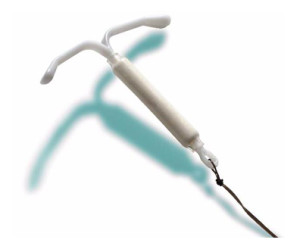Judge Orders Bayer to Provide Sales Call Notes in Mirena Lawsuit
 A federal judge has ordered Bayer Pharmaceuticals to produce sales call notes pertinent to a Mirena lawsuit currently underway in California. The judge determined that provision of these sales call notes could support allegations by the plaintiff that the company promoted their product while minimizing the product’s risks.
A federal judge has ordered Bayer Pharmaceuticals to produce sales call notes pertinent to a Mirena lawsuit currently underway in California. The judge determined that provision of these sales call notes could support allegations by the plaintiff that the company promoted their product while minimizing the product’s risks.
Mirena lawsuit details
The plaintiff in this case, Nicole Baker, petitioned for the production of sales call notes because they provide details of the ways in which representatives of the company marketed their product to healthcare providers. She asserted that her request falls under the umbrella of Request for Production No. 8, which includes documents relating to brand and marketing strategies and tactics used by the company to influence providers to increase the number of Mirena prescriptions they issued.
The judge overseeing the California lawsuit, Magistrate Judge Kandis A. Westmore in the Northern District of California agreed with Baker’s assertion. However, the judge limited the amount of sales call notes that had to be produced, to avoid placing an undue burden on the defendant. Judge Westmore noted in the decision that in 2011 alone, Bayer had more than 1.5 million sales call notes regarding Mirena. That number would be multiplied by the fourteen years the company has had the IUD on the market.
Judge Westmore also stated the by requiring Bayer to produce sales call notes that have already been provided in the Mirena multidistrict litigation currently pending in New York District Court. That MDL was established in April 2013 to streamline early trial proceedings for a growing number of cases with similar allegations against Mirena manufacturer Bayer. Judge Cathy Siebel is currently overseeing the cases in the Southern District of New York, which now involves more than 1,500 plaintiffs.
Plaintiff alleges multiple injuries
In her lawsuit, Baker has alleged she suffered a number of complications after she was implanted with the IUD, including Mirena uterine perforation, cysts, infection and embedment of the device. Baker also experienced an ectopic pregnancy while using the Mirena, which led to fetal injury and fetal death. Baker further asserts in her complaint that Bayer failed to warn the medical community or general public about these risks, as their over-promotion of the product minimized the inherent dangers.
Baker maintains that production of sales call notes from the company “are evidence of a vigorous sales campaign to induce the entire medical profession in general to fail to heed any written warnings.” Judge Westmore agreed with Baker’s assessment, although the judge supported limiting those call notes since a cross section will effectively show the strategies and tactics Bayer used across a wider physician market.
History of the Mirena IUD
The Mirena IUD was first introduced to the U.S. market in 2000, and was heavily promoted by Bayer as a convenient choice in birth control. In 2009, the FDA sent a letter to Bayer, warning the company that their advertising was overstating the benefits of the product while minimizing risk. Women that have been injured by the IUD also began filing lawsuits against the company, alleging Bayer failed to provide proper warning about possible complications. Common complaints have included migration of the device outside the uterus, which has required IUD surgical removal in some cases.
- Harris Martin, Calif. Federal Judge Orders Bayer to Produce Sales Call Notes in Mirena Action, http://harrismartin.com/article/18737/calif-federal-judge-orders-bayer-to-produce-sales-call-notes-in-mirena-action/
- New Jersey Courts, Federal Multi District Litigation Contact Information, http://www.judiciary.state.nj.us/mass-tort/mdl.htm
- FDA, Warning Letter to Bayer Healthcare Pharmaceuticals, Inc., http://www.fda.gov/downloads/Drugs/GuidanceComplianceRegulatoryInformation/EnforcementActivitiesbyFDA/WarningLettersandNoticeofViolationLetterstoPharmaceuticalCompanies/UCM197229.pdf
- Mayo Clinic, Mirena (Hormonal IUD) Risks, http://www.mayoclinic.org/tests-procedures/mirena/basics/risks/prc-20012867


 Resources
Resources
 Resources
Resources
